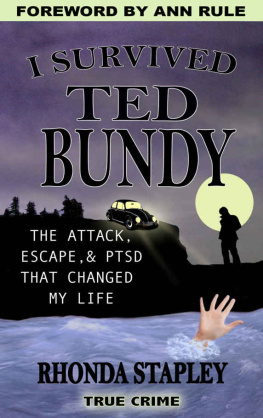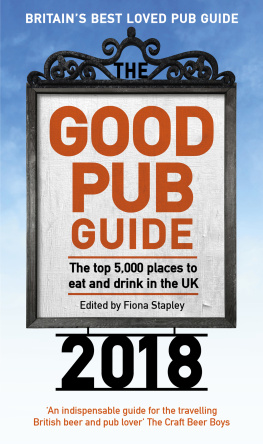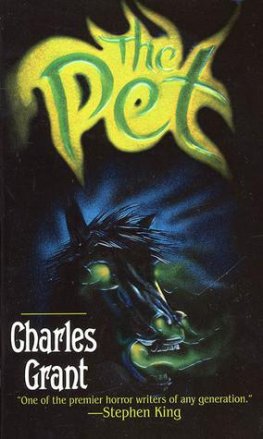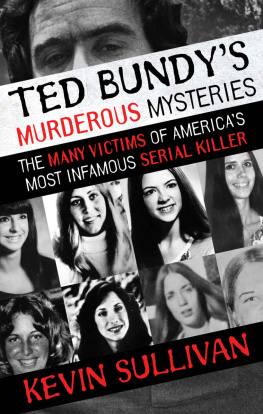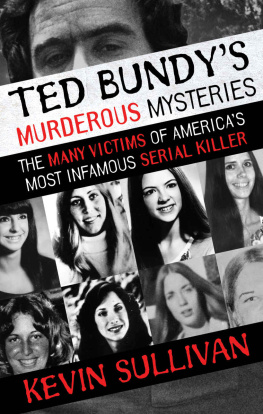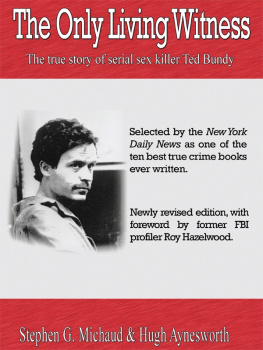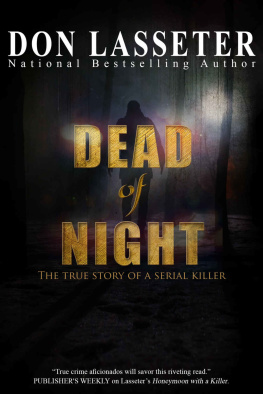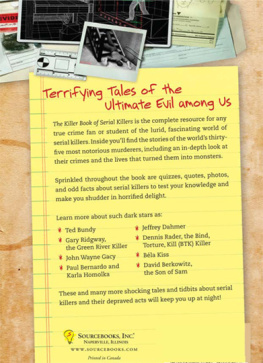by
Ann Rule
Becareful what you wish for
Idont think I fully grasped the significance of that old adage back in 1970when I wished for something that seemed impossible at the time. But when mywish was granted, I finally heard the warning that echoed in those words, for Igot exactly what I asked foralong with some unwelcome surprises I hadnot bargained for.
If I could only get inside a killers mind,I would never ask for more.
Thatwas my wish. And I know it sounds like an odd thing for a suburban mother offour to dream of, but there was a very good reason for my desire to understandthe criminal mind. I made my living on crime. Not committing crimesbut writingabout them.
Itwasnt my first career choice. What I really wanted to be was a cop. It was inmy blood. My grandfather, Chris Hansen, was the sheriff for Montcalm County,Michigan. Uncle Elton was the undersheriff, Uncle Carl was the MedicalExaminer, Aunt Millie worked in the juvenile court, and my cousin Bruce grew upto become a prosecuting attorney. My Hansen grandparents lived in a Mom andPop jail. Their home, the office and the cells were all under one roof. (WhenI visited, I slept in a jail cell down the hall from my grandparents bedroom.)My grandpa arrested the felons, and my grandma cooked for them.
WhenI was a little girl, I carried meals on trays to the female prisoners, andvisited with them while they ate. I will never forget Viola. She taught me howto crochet and warned me not to trust women who plucked their eyebrows intothose itty-bitty lines. She was awaiting trial for fatally shooting herhusband after she caught him in the arms of her best friend. They were in thetruck she had bought for him with the tips she earned waiting tables. It was ajustifiable homicide, she explained to me.
Yearslater, I went to the University of Washington, where I majored in abnormalpsychology, criminology and penology. I also signed up for every writing courseoffered, because it came so naturally to me, and I knew it would be an easyA. But I had no desire to be a writer, and I was thrilled when immediatelyafter graduation, I was hired by the Seattle Police Department to work as aprovisional police officer in the Womens Division.
Aftereighteen months on the job, I took the required Civil Service Exam. My eyesightwas so bad without my glasses that the nurse let me step up closer to thechart, but I couldnt see the big Eor the wall behind the big E! I flunked the eye test. I was legally blind,and if my glasses were knocked off during a struggle, I would be helpless todefend myself. I understood, but I was crushed. My police career was over whenit had barely started.
Imarried, had four kids and later adopted a fifth. My marriage ended when myoldest children were teens. My ex husband was diagnosed with terminal cancer,and it was up to me to put food on the table.
Isomewhat naively decided that writing would be the perfect career, because itnot only came naturally to me, it would allow me to stay home. But it wasnt aseasy to get published as I thought, and I collected piles of rejection slipsbefore finally seeing my words in print.
EventuallyI became the northwest correspondent for TrueDetective Magazine and her sister publications. My beat stretched fromEugene, Oregon, to the Canadian border, and I reported on rapes and murders,writing two to three full-length articles each week.
I somehow found the time to volunteer twonights a week at the Seattle Crisis Clinic, a hotline where troubledindividuals phoned for help. My own brother had committed suicide a few yearsearlier after battling depression. Warranted or not, I felt guilty because Ihad not been able to talk him out of his funk. I couldnt stop my brother fromtaking his life, but, I told myself, maybe I can help others. After receivingtraining, I went to work at the Crisis Clinic.
Iwas paired up with a young law student named Ted, and together we saved lives.Often our callers had taken lethal doses of drugs, and they phoned us afterhaving second thoughts. Sometimes they were so groggy, it was hard to understandthem, let alone get their names and addresses. It was a team effort, with oneof us keeping the caller awake and talking, while the other called for a trace,so we could send help.
Ifound Ted to be a compassionate young man who seemed to truly care about thepeople we helped. We were all alone at Crisis Clinic headquarters, located in athree-story Victorian house on Seattles Capitol Hill. Between crisis calls, weshared our life stories with each other and became friends and confidants.
Duringone shift Ted mentioned that his girlfriend wanted to read my work, and heasked me for some detective magazines with my stories. I brought in several,and Ted took them home. He never commented on them, and I assumed he hadntread them.
If Ichurned out a dozen detective stories a month, I earned enough to support myfamily. As a former policewoman with a degree in creative writing, I was in myelement. But as a mother, I was afraidnot for myself, but for mydaughters. With access to the Seattle Homicide Departments files, I was privyto details sometimes too horrific to include in those articles. I became alltoo familiar with aberrant behavior and grisly murder scenes. I so often warnedmy daughters to be careful that they accused me of being paranoid. They wereteens when I covered one of the most frightening and baffling cases thatSeattle detectives ever encountered.
Mystint at the Seattle Crisis Clinic had ended, and I didnt see much of my oldfriend, Ted, in the mid 1970s when young women and girlsmostly highschool or college studentsbegan to inexplicably vanish. The victims wereresponsible girls from loving families, mostly good students with no history ofrunning away or getting into trouble. The disappearances were sudden and unpredictable,often occurring in populated areas in broad daylight. All of the girls werepretty with long hair parted in the middle. Some looked enough alike to besisters. It soon became apparent that the cases were connected and that the predatoror

